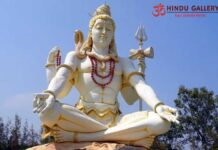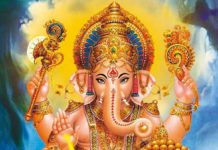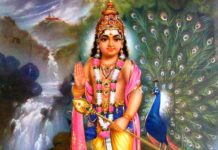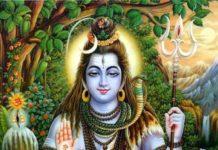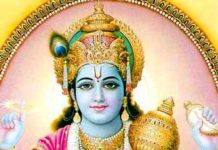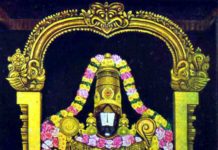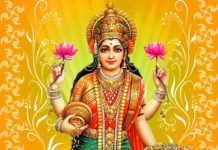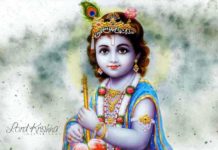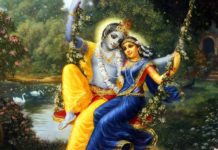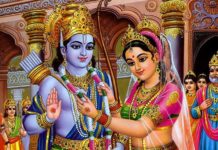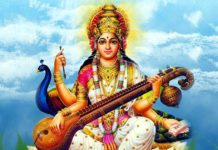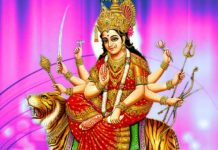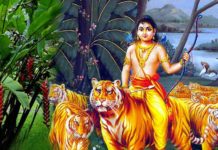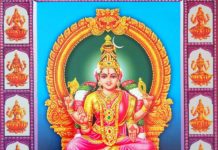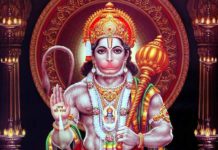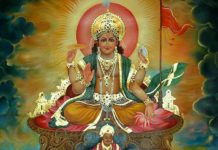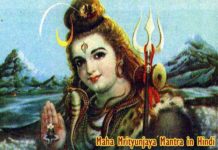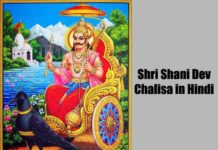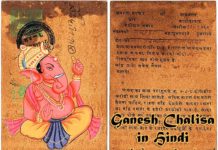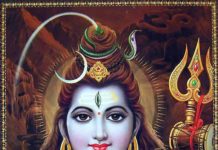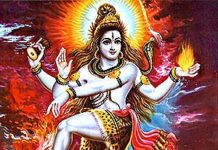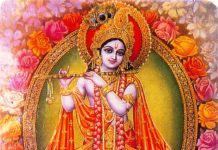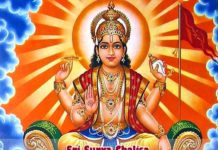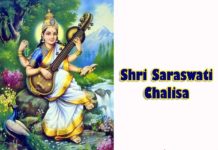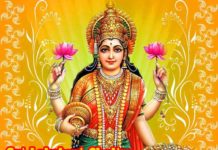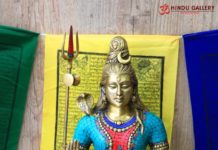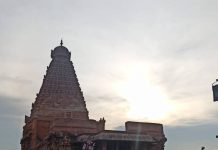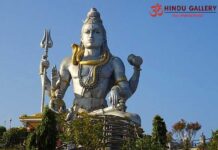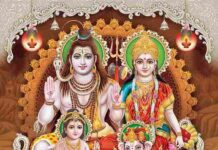Sheethala Devi festivals are ascribed to Sri Sheethala Devi, the manifestation of Sri Durga Devi. The word “Sheethala” means “coolness”.
Sheethala Devi form
Sheethala Devi is the Goddess sitting on a donkey holding broomstick, neem leaves and a pot. The broomstick signifies the need for cleanliness; Neem leaves offer cure for many deceases; The pot is said to contain medicinal healing liquids.
It is believed that She prevents and cures the deceases connected with the heat and the onset of summer such as small pox, measles, chicken pox, rashes etc.,
She is worshipped immediately after Holi festival which heralds the spring season. Since this also is the season for slow increase of heat in the atmosphere which may result in deceases, Sri Sheethala Devi is invoked.
She is also called as Jagrani, Thakurani, Karunamayi, Mangala, Bhagavathi, Dayamayi. Down South, Sheethala Devi is worshipped as the Goddess removing illness depicted in the form of Mahamaayi, Karumari, Mariamma, Kanniamma and other Sri Durga manifestations.

Sheethala Devi – Festivals
There are basically three festivals observed invoking Sri Sheethala Devi. The festivals normally commence on the first Monday or Thursday after Holi in some places.
There is a belief that it is auspicious to offer only the previous day cooked food to Sri Sheethala Devi as Neivedyam. For each of the festivals, the Neivedyam food is prepared the previous evening.
Sheethala Shashti
This ideally occurs on the Krishna Paksha Shashti of the Chaitra month. However, in most of the places, this festival is observed on the sixth day of Holi.
Sheethala Shashti occurs on Sunday, 31st March 2024. The exact duration of the Sashti Tithi has to be ascertained from the respective regional calendar.
Married couple observe Vrat on this day for getting progeny. Special pujas are done to Sri Sheethala Devi and the previous day food is offered as Neivedyam. Only that is partaken.
Sheethala Sapthami
This ideally occurs on the Krishna Paksha Sapthami of the Chaitra month. However, in most of the places, this festival is observed on the seventh day of Holi.
Sheethala Sapthami occurs on Monday, 1st April 2024. The exact duration of the Sapthami Tithi has to be ascertained from the respective regional calendar.
People rise early in the morning and take bath in cold water. They visit the nearby Sheethala Devi temple and offer prayer for peaceful and happy life.
In some places, people offer mundan, foregoing of the hair by shaving their head in the temple. This is done in honor of Sheethala Devi.
Women observe vrat on this day for the welfare and health of their kids and family.
Sheethala Ashtami
This ideally occurs on the Krishna Paksha Ashtami of the Chaitra month. However, in most of the places, this festival is observed on the eighth day of Holi. In some places, every Krishna Paksha Ashtami is observed as Sheethala Ashtami.
Sheethala Ashtami occurs on Tuesday, 2nd April 2024. The exact duration of the Ashtami Tithi has to be ascertained from the respective regional calendar.
This festival is also called as Basoda. In some places in North India, spiritual musical programs are held on this day.
Rituals
As it is believed to be auspicious to offer only the previous day cooked food to Sri Sheethala Devi as Neivedyam, no cooking is done on that day.
Food items
In the previous day evening, special dishes are made using jaggery and oil. Dishes such as sweet rice, sweet roti, puri potato and gulgule are prepared. In some places, black gram is just soaked.
Temple visit
On the Sheethala Ashtami day, people rise before sunrise. After bath, they visit the nearby Sheethala Devi temple. They take the food prepared in the previous evening. If only the black gram was soaked, it is taken.
They perform puja to Sheethala Devi with turmeric and bajra. They listen to Basoda Vrat Katha.
Basoda Vrat Katha
It is believed to be mentioned in Sri Skanda Puran.
Jwarasura
Once there was a demon named Jwarasura. He was the personified form of contagious deceases and epidemics. He made people fall ill and die. His activities had spread the sickness. No medicine could heal the people affected by the Demon.
Prayer to Sri Shakthi
So, people prayed to Sri Shakthi to protect them from Jwarasura.
Sheethala Devi
Sri Shakthi appeared in the form of Sheethala Devi. She came with the pot of medicinal liquid and gave it to the people. They got cured.
She fought ferociously with Jawarasura and then he surrendered.
Vahan
Jwarasura sought forgiveness for his misdeeds. Sheethala Devi made him into a donkey and kept it as Her vahan.
Neivedyam
After listening to Basoda Vrat Katha, the Neivedyam is done to the Deity with the food taken from home to the temple. Rabdi, curd, lassi and other coolants are also offered as Neivedyam to Sheethala Devi.
Only the food items offered as Neivedyam are partaken and distributed. No other food is taken.
Elders
It is considered auspicious to feed the old people and seek their blessings on this day. The temple prasadam is offered to them and the blessings from the elders are taken.
Sheethala Ashtakam
Reading and reciting of Sheethala Ashtakam is considered auspicious. As per Sri Skanda Puran, it is believed that it was originally recited by Bhagwan Shiva Himself.



